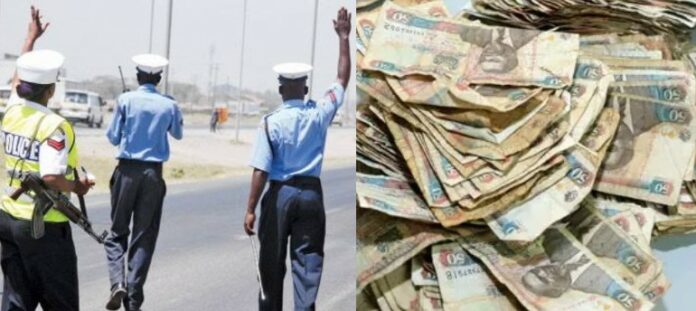For a long time, every matatu driver or conductor has been seeking loose change in the Sh. 50 denominations before the start of a journey.
This loose change is then distributed to traffic police officers who station themselves at strategic points across Kenya’s highways and back roads. A journey between Nakuru and Nairobi can easily consume as high as Sh. 500 in bribes.
This means that for every 14 seater matatu, one passenger’s fare is used on traffic police bribes.
Now, matatu drivers and conductors are in for a shock and depleted revenues as many traffic police officers are reportedly no longer accepting Sh. 50 bribes. They have allegedly hiked the costs per matatu bribe to Sh. 100.
Reports from aggrieved matatu drivers suggest that the cops are also complaining about the cost of living, which they say the Sh. 50 bribes are doing little to nothing to eliminate.
This means, for example, that for the same amount drivers and conductors were paying in bribes, they are now oaying double.
Asked why they can’t just stop paying the bribes, drivers say that failing to pay will mean withdrawing their vehicles from the roads.
I quit my bank job in Kenya to go to Canada; now am homeless in streets
“If you don’t pay, you are marked and victimized endlessly. You will be cited and harassed and sued for traffic violations you never committee. It’s just easier to pay and get it away with,” one driver said.
Another one said that matatus will now have to just pass the increased costs of bribes to the passengers. “Fuel prices have hiked and now traffic is forcing us to pay double what we have been paying. We will have to just ask passengers to pay more,” he said.
Whereas taking of bribes and other traffic violations had been kept in check during the Michuki era under the government of former late president Mwai Kibaki, successive governments and Ministries of Transport have largely ignored the public transport sector, leading to a chaotic service and runaway bribery.









